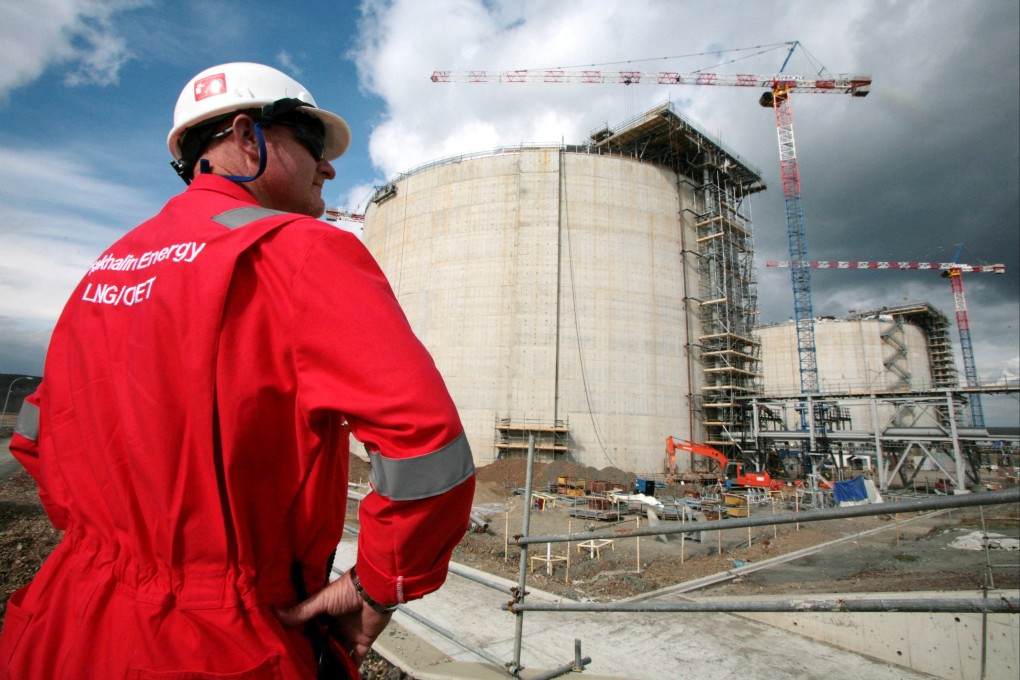Advertisement
Ukraine war: Is Vladimir Putin using oil to ‘blackmail’ Japan for slapping sanctions on Russia?
- Moscow is seeking to take over control of an oil development that supplies 10 per cent of Japan’s liquefied natural gas, at a time the country is experiencing energy shortages
- While the move has been described as ‘effective blackmail’ by observers, others say Russia knows it is in both parties’ interests to avoid a full-blown clash
Reading Time:3 minutes
Why you can trust SCMP
69

Moscow’s decree to take over the management rights of an oil and natural gas development in the Russian Far East, which provides around 10 per cent of Japan’s liquefied natural gas, has been criticised by analysts as “effectively blackmail”, as the Kremlin responds to Western-led sanctions against its invasion of Ukraine.
President Vladimir Putin issued the decree shortly after a G7 meeting in Germany, where member states outlined plans to limit Russia’s earnings, which come primarily from exports of natural resources and are being used to fund Moscow’s invasion of Ukraine. Nato states are similarly looking into ways to damage the Russian economy and, ultimately, force Putin to withdraw his troops.
The Russian leader has taken exception to Japan’s support for international sanctions on his regime, particularly after Prime Minister Fumio Kishida indicated on Sunday that Japan supported calls for a price-cap mechanism on imports of Russian energy, with the price set at between US$40 and US$60 a barrel, around half the current price on international markets.
Advertisement
The cap would be enforced through the introduction of a ban on insurance and other services required to transport Russian energy unless the oil or gas is bought below an agreed price.
Yoichi Shimada, a professor of international relations at Fukui Prefectural University, said Russia was “effectively blackmailing” Japan.
Advertisement
Advertisement
Select Voice
Select Speed
1.00x